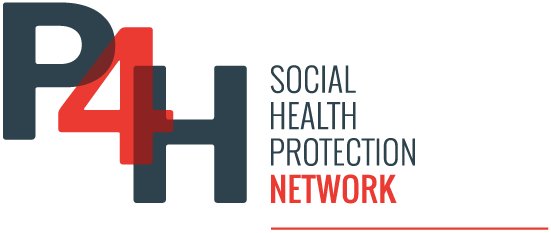Meeting of the Technical Working Group on Health Financing in Côte d’Ivoire
Event Time : 21 Jan 2022 9:00 am to 21 Jan 2022 12:00 pmTimezone: UTC±00:00Event is Conference : No
P4H CFP initiated process of developing common understanding and consensus building at the WHO office Namibia on the ACT-A process guide for budgetary dialogue
Following the introduction of the ACT-A process guide to the P4H Country Focal Person (CFP), the CFP initiated the process of consensus building at the WHO Country Office Namibia. Discussions with World Health Organization Representative (WR) Namibia: The P4H CFP...
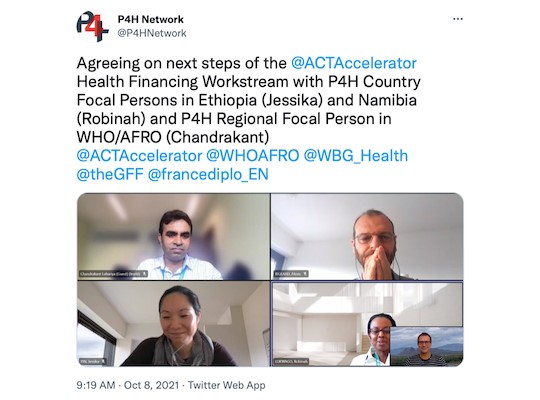
The Access to COVID-19 Tools – Accelerator (ACT-A) process guide for budgetary dialogue introduced from the P4H Global Coordination Desk to the Country Focal Persons (CFP) Namibia
The Global Coordination Desk Core Team members presented the ACT-A process guide for national budgetary dialogue tool and opportunity to the P4H Country Focal Person (CFP) Namibia on 7th October 2021. The CFP Ethiopia along with the African Regional Office (AFRO)...

Cross country learnings for initiating dialogue in the countries
P4H provided platform and promoted dialogues, experience sharing between countries, regional office, global experts and global coordination desk. The Country Focal Person (CFP) Namibia had the opportunity to have regular interactions with other CFPs like the CFP in...
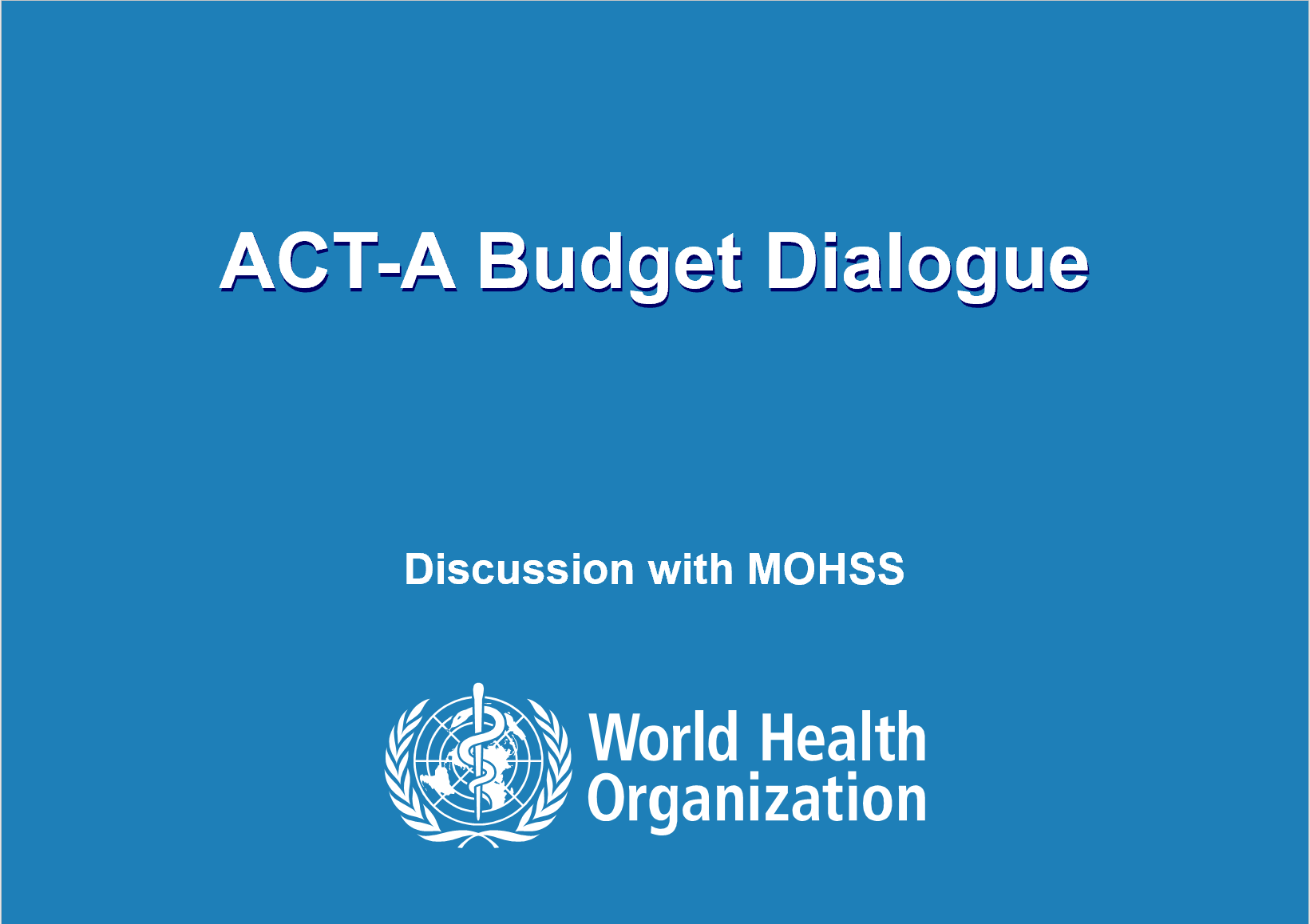
Development of the presentation to collaborate with Government and Partners
Following the inputs from the WHO Namibia office, orientation from the Global Coordination Desk as well as Regional Support, and learnings from other countries, the Country Focal Person (CFP) Namibia developed an introductory presentation on the discussion of the...
P4H CFP continued dialogue with the MOHSS to discuss the priorities
The P4H Country Focal Person continues liaison with the Ministry of Health in Namibia towards budgetary dialogue in the context of COVID-19. Discussion with Deputy Director Budget and Finance: There were discussions with Deputy Director Budget and Finance who...
Small task force of the UHC Committee to agree on the potential areas of support through ACT-A
A small task force from the UHC Committee consisting of representative from WHO, MoHSS – Policy and Planning Department, USAID and Abt Associates was constituted and convened in Namibia. The task force discussed different options, developed a matrix of possible area...

P4H CFP Engagement with Partners and Ministry to promote joint ownership
The P4H Country Focal Person (CFP) made a presentation at the Universal Health Coverage (UHC) Committee meeting with the objective of taking the initiative further and promoting joint ownership towards the budget dialogue. The presentation focused on ACT-A initiative,...

Financing remains the Achilles’ heel of healthcare in Africa
Experts in publichealth , data, health scientists, civil society representatives and decision-makers are calling for a new public health order in Africa, capable of effectively guarding against future health crises. This appeal was launched during the...
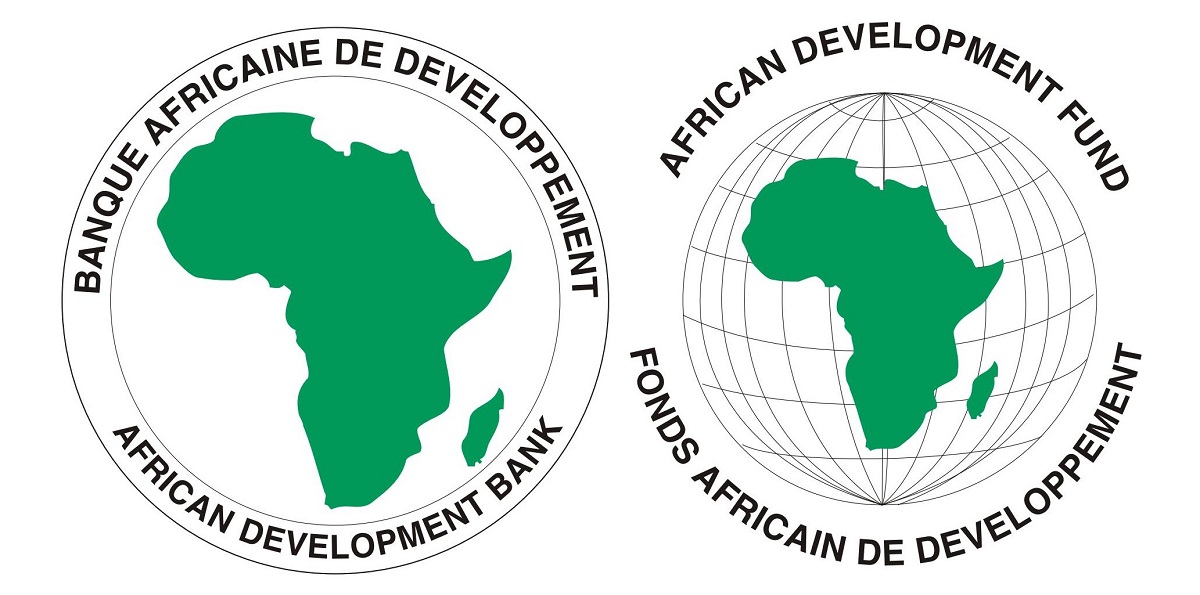
Финансирование – фармацевтическая промышленность Африки: АфБР предоставляет 1,764 млрд. каф.
Африканский банк развития (ADB) принял решение о выделении Африке 3 млрд. долларов, или 1 764 млрд. франков КФА, для укрепления африканской фармацевтической промышленности. Д-р Акинвуми Адесина, Президент АфБР. На пресс-конференции в Дакаре (Сенегал), где он...

Financing – Africa’s pharmaceutical industry: ADB invests Cfa 1,764 billion
The African Development Bank (ADB) has decided to make available to Africa the sum of 3 billion dollars, or 1,764 billion CFA francs, to strengthen the African pharmaceutical industry. Dr Akinwumi Adesina, President of the AfDB. At a press conference in Dakar,...

Togo: FCFA 19 billion planned for universal health coverage in 2022
For this year, the Togolese government plans to devote 19 billion FCFA to Universal Health Coverage (UHC), according to official information. This represents 18% of the resources allocated to the Ministry of Health (which stand at 105.4 billion FCFA), according to the...
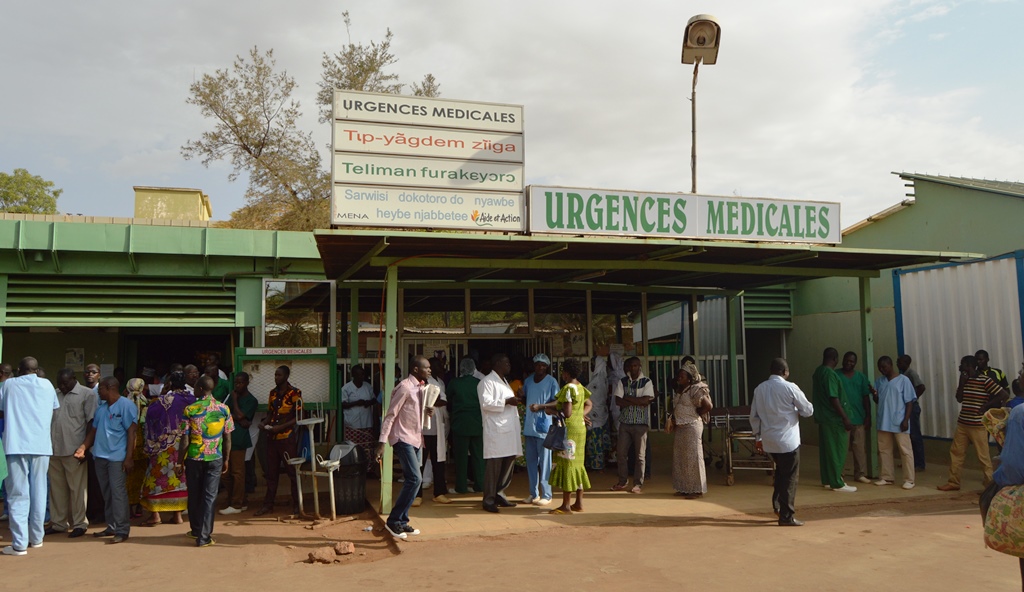
CSU in Burkina Faso: RAME makes the diagnosis
As part of the process of strengthening social mobilization to accelerate universal health coverage (UHC) in Burkina Faso that it has been undertaking since 2019, the Access to Essential Medicines Network (RAME) initiated a public conference this January 28, 2022. It...
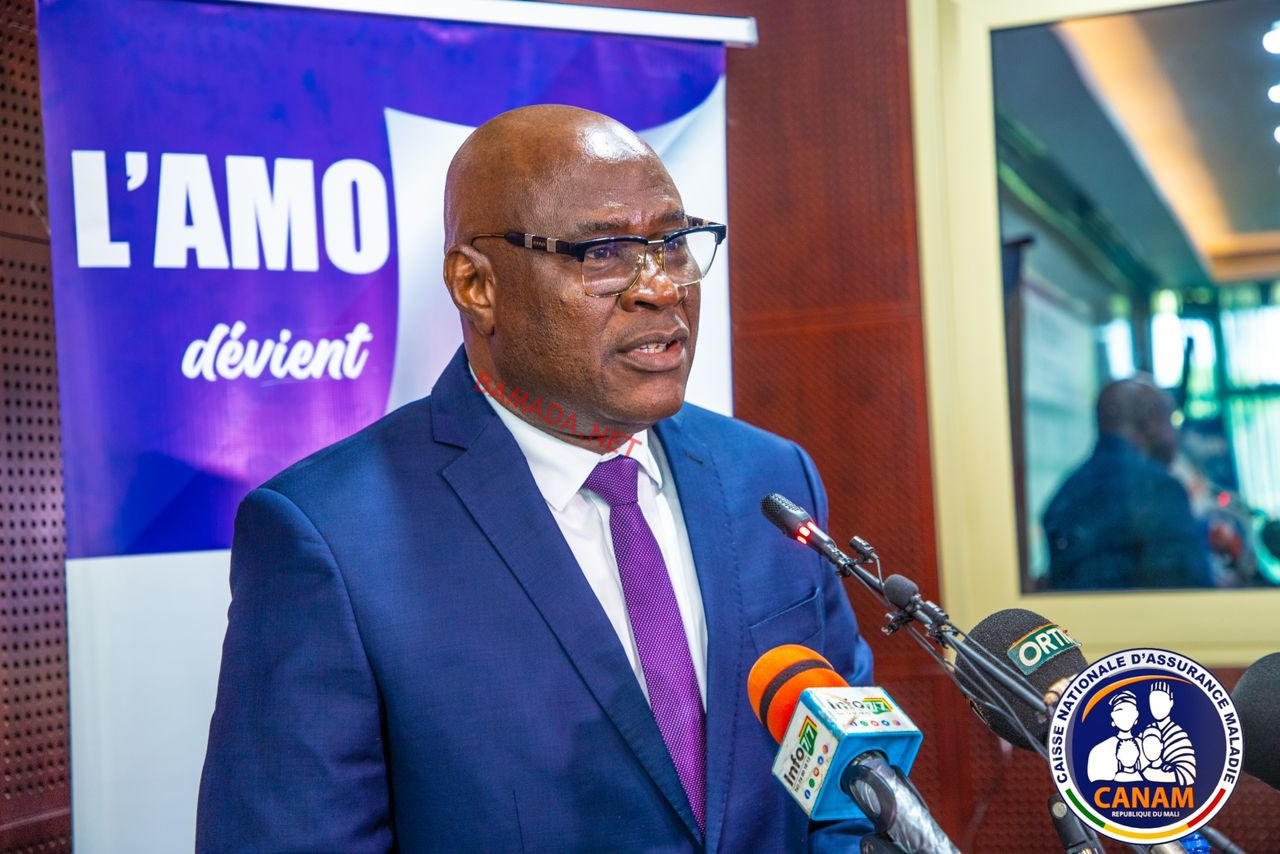
MALI: RAMU now operational!
Since 2015, the Government of Mali has been engaged in a process that will make it possible to set up, from 2018, a social protection system against the risk of illness for the benefit of the entire Malian population. The introduction in 2009 of the Compulsory Health...
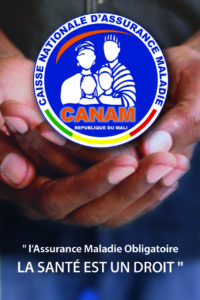
CANAM MALI: Ségou equips itself with an information system
In Ségou, the regional office has just been equipped with the Activ Premium software package, which has been adopted by CANAM. This new system is designed to provide AMO players and partners with a modern information system for fast, secure operations, dematerialize...
